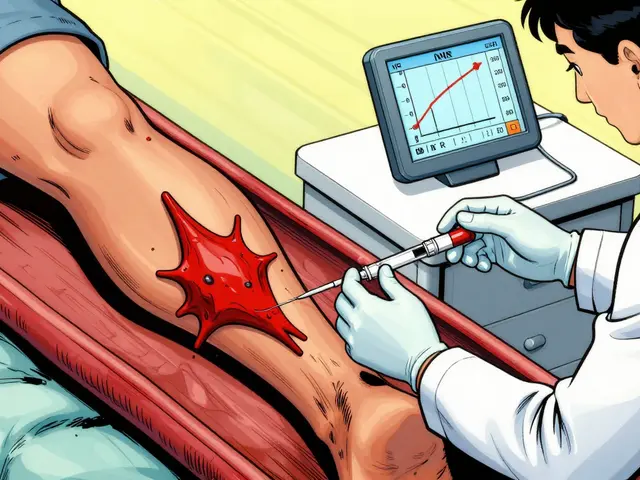Start Working: realistic timelines for when meds begin to help
Wondering when a pill or inhaler will actually help you? Different drugs work on very different schedules. Below you’ll find practical, specific timelines for common medication types and quick tips to avoid mistakes.
Fast-acting meds (minutes to hours)
Some medicines act quickly. Inhalers like Ventolin (albuterol) usually relieve wheeze and shortness of breath within 5–15 minutes. ED drugs also work fast: avanafil can take effect in about 15–30 minutes, sildenafil often 30–60 minutes, and tadalafil around 30 minutes but lasts much longer (up to 36 hours). Anti-nausea domperidone typically starts easing symptoms in 15–30 minutes. For these, timing matters—take them when you expect symptoms, and know if food affects absorption (sildenafil works better on an emptier stomach).
Slower meds (days to weeks)
Many medications need time to change the body. Antibiotics like Augmentin often show clear improvement within 24–48 hours for bacterial infections; if you see no change after two days, call your prescriber. Drugs for urinary flow such as tamsulosin may ease symptoms in a few days, but full benefit can take 2–4 weeks. Blood pressure meds like olmesartan lower readings over days to weeks, with noticeable effects usually within 1–2 weeks.
Psychiatric meds are slower. Buspirone (Buspar) often needs 2–4 weeks to start working and up to 6 weeks for full benefit. SSRIs like sertraline (Zoloft) can take 2–6 weeks for mood improvement; early side effects may appear sooner. If you’re switching antidepressants, expect a few weeks before judging effectiveness.
Maintenance inhalers and combination inhalers (like Symbicort alternatives) are not immediate relievers. They reduce inflammation over days to weeks, so don’t expect rapid relief the way a rescue inhaler provides.
Supplements and topical products vary. Fiber supplements such as black psyllium need several days to weeks for regular bowel changes. Oils or skin products (babassu oil, for example) show gradual results over weeks with consistent use.
What to do while waiting: track symptoms with a simple daily note, stick to the prescribed dose and schedule, and avoid mixing meds without checking interactions. If side effects are intolerable or you see no improvement after the expected window, contact your prescriber. Never stop a medication suddenly without medical advice.
Quick checks that help: read the patient leaflet for expected onset, ask your pharmacist about food interactions, and set a reminder to reassess after the typical timeframe (48 hours for many antibiotics, 2–4 weeks for some psychiatric meds). If symptoms worsen or you get new severe reactions, seek care right away.
Want specifics for a drug you’re taking? Look up the exact medication page or ask a pharmacist. Knowing the usual "start working" window helps you avoid unnecessary worry and make smarter choices while your body adjusts.





